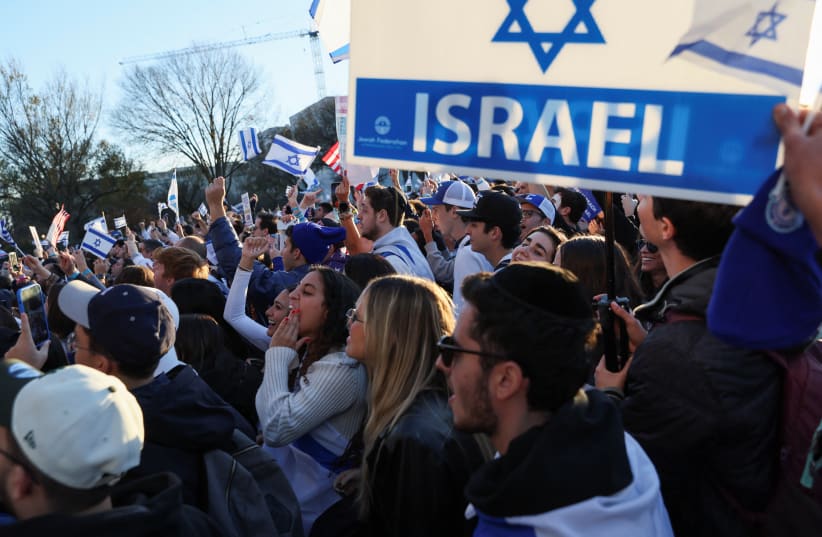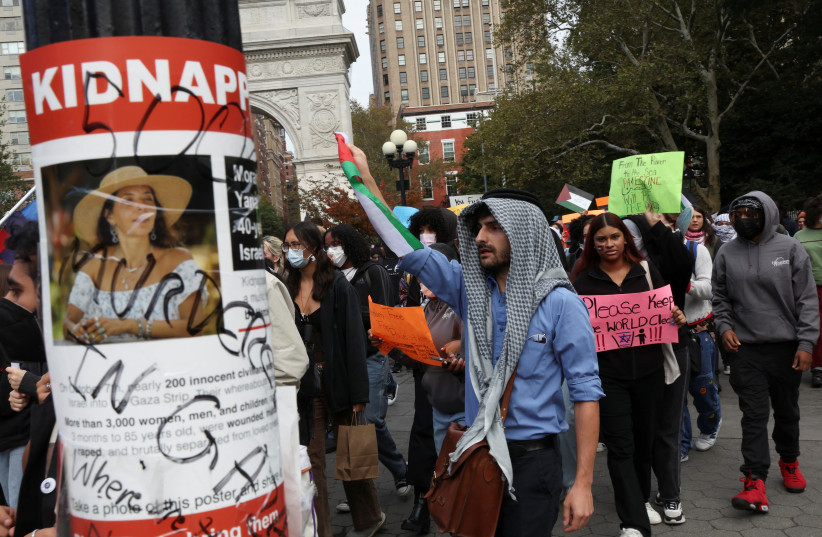‘The promise made to our forefathers holds also for us/For not just one enemy has risen against us to destroy us/But in every generation they rise against us to destroy us/And the Holy One Blessed Be He, saves us from their hands.” (Jewish poem, Vehi Sheamda from the Haggadah.)
Jews worldwide are facing a familiar surge in Jew-hate. Even communities that, for a time, felt immune to it now stand in shock and horror at what is unfolding before them.
During my recent tour in North America, I had a discussion with a rabbi who asserted that what was happening at this moment with regard to Jew-hate was a blip. I was aghast. I argued that it was, in fact, the inverse. It was the 50 or so years when overt Jew-hate was still taboo that constituted the blip. What we are unfortunately experiencing now is a return to the Jewish norm.
Like our ancestors, and despite claims by racist factions in the non-Jewish world, this hurricane of hate has nothing to do with us or our actions. Instead, it is rooted in the non-Jewish fantasy of the Jew, which is utilized to define non-Jewish identity and experience. In reality, these fantasies should have nothing to do with us.
However, they do influence how we, as Jews, are treated and in turn, how we feel about ourselves and our Jewishness. This influence can lead us to see our Jewishness as a source of pain or even shame, prompting some to distance themselves from their Jewishness as a way to escape the constant threat of Jew-hate. Unfortunately, none of these strategies ever truly works.
So, what is our response? As I have been advocating and writing about for years, our response must be Jewish Pride. There should be no discussion or debate about this. The concept of pride, as detailed in my first book, Jewish Pride: Rebuilding a People, is not a hypothesis or a theory; it is a proven antidote to the destructive power of hate.
Pride should be the response
Look to the LGBTQ+ community as a significant case study showcasing the transformative potential of pride.
Jewish Pride educates, inspires, and empowers Jews to view our Jewishness as a source of pride and never shame. It serves as a barrier against Jew-hate, which seeks to burrow into our subconscious and warp our self-perception. Through Jewish Pride, we are equipped with the knowledge and strength to define our own identities and experiences, rejecting non-Jewish ones. The only people who get to define Jewish identity are Jews.
In my years of contemplating Jewish Pride, one thought has consistently emerged: to be Jewish is tangible. We are not a “faith” (that is a Christian idea of religion). We are not even a religion. We are a people with a religion, and that is quite different. We are a civilization as strong and beautiful as any other. We have real cultural practices that are unique to us.
THE HANUKKIOT we lit last week serves as a powerful reminder of Jewish action and Jewish specificity. We are not like everyone else; we are unique. Not more or less unique than any other people, but we must honor that specificity. For centuries, Jews have been coerced into shedding their uniqueness and becoming just like everyone else. This process is about making Jews palatable. To that, we must resoundingly say, “No!”
We will not be palatable Jews. We will not cower and beg for acceptance.
Instead, we will hold our heads high and demand it. If it is not given, then we will not stay to be abused. This is not to say we segregate ourselves or even insist that all Jews make aliyah; rather, we must know our intrinsic worth and reject any attempts to make us feel less than. We must recommit ourselves to our Jewishness, but that commitment is not prescriptive.
Jewish civilization and culture are so vast that every Jew can find something they connect with in the pantheon of Jewish practice and thought. I often write that Jewishness is a buffet table groaning under the weight of food from all over the Jewish world. Each Jew must get up from their seat at this enormous simcha (party) we have all found ourselves at and choose something from the table. That is our right – and our responsibility.
Since the horror of October 7, I have heard anecdotally about Jews worldwide deepening their connection to their Jewishness. This is a beautiful byproduct of a terrible crime. And it is one that must continue. Each of us has a responsibility to ensure the survival and continuation of the great, beautiful family we find ourselves a part of.
Jewishness does not belong to us. We are its current caretakers. In time, we will pass it on to the next generation.To be Jewish is an extraordinary thing.
We are the direct descendants of people who had an undying commitment to their Jewishness. Their strength and dedication live on in us.
We must see our Jewishness as the gift that it is; learning our story and understanding how it continues to shape our identities. We are not what the world says we are. We reject their attempts to shame us. We will hold our heads high, honor our specificity, and shout with a resounding voice: “Am Yisrael Chai. The People of Israel live. Proudly.”
The writer is the founder of the modern Jewish Pride movement, an educator, and the author of Jewish Pride: Rebuilding a People. His new book is Reclaiming Our Story: The Pursuit of Jewish Pride.

